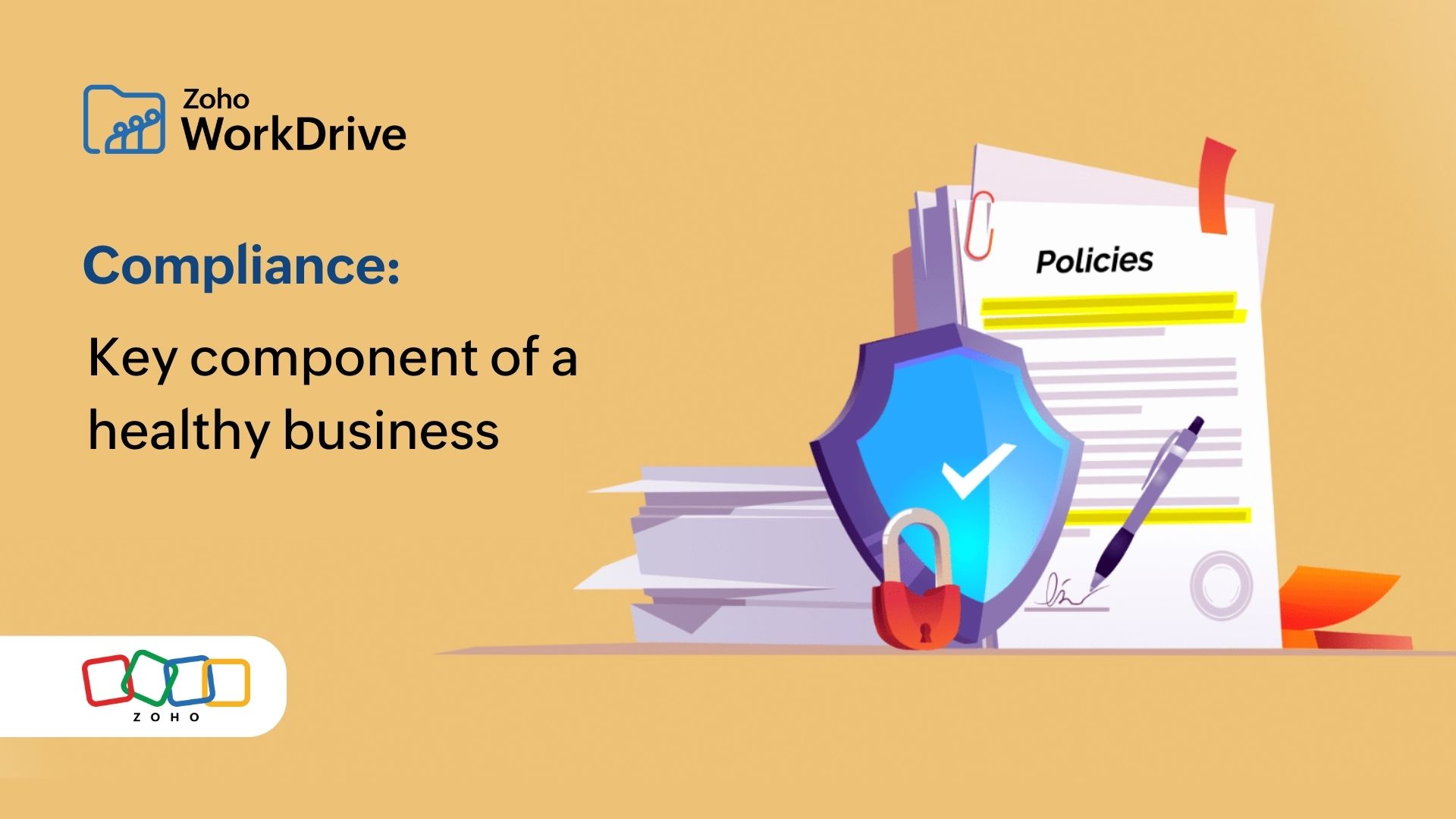- HOME
- Work Culture
- Business compliance explained
Business compliance explained
- Last Updated : December 17, 2023
- 1.3K Views
- 4 Min Read

How can a business demonstrate credibility and trustworthiness? What is the simplest and most effective way to ensure your product is secure? These questions can have a multitude of answers, but there's one consideration that is always crucial—compliance.
In this blog, we'll talk about what compliance means, why it's important, and the best practices a business can follow to ensure a healthy implementation of compliance standards.
What is compliance?
Compliance is the process of adhering to the guidelines put forward as statutes by the applicable governing agencies. The guidelines can either be based on security standards, quality standards, or measures required to ensure seamless operation. Depending on the governing agency, compliance can either be mandatory or optional.
For instance, fire safety regulations are a requisite for IT companies. However, compliance with ISO, GDPR, and HIPAA is not mandatory in the IT industry. It is up to individual companies to determine whether they will attempt to meet these requirements.
Nevertheless, any failure to follow the rules is likely to attract legal trouble and financial penalties.
Types of compliance
In general, compliance is measured within two broad categories: operating areas and compliance frameworks. Operating areas refer to both internal policies and external regulations. Internal policies include actions like compliance monitoring, employee training, and the development of HR policies. External regulations, on the other hand, refer to the guidelines put forward by government agencies and regulatory bodies based on the type of industry that the business operates within. Compliance framework refers to the focus of the guidelines. For instance, ISO 27001 focuses on information security, whereas ISO 9001 focuses on quality management within an institution.
Now, coming to the classifications mentioned before, the two types of compliance are corporate compliance and regulatory compliance. Corporate compliance requires the framework and guidelines of the statute to be applied to both the internal policies and external regulations, whereas regulatory compliance takes only external regulations into consideration.
Why do you need compliance?
Abiding by compliance guidelines helps a company foster a healthy operation, and can help a business improve its effectiveness, build trust with customers, and ensure the safety of employees.

Being compliant ensures that the company takes measures to secure the data it holds. Doing so upholds the integrity of the business and helps it build mutual trust with stakeholders. Importantly, compliance also helps a company avoid any penalties.
For instance, a US firm that collects user medical data has to be in compliance with HIPAA. This means that the company has to put adequate security measures in place to collect and store the health-related personal data of its users.
Best practices for ensuring compliance:
Your business' compliance team should remain vigilant of the practices the company must follow to be certified or recognized by the policymakers. When it comes to compliance, in the effort to ensure that no stone is left unturned, even the smallest details have to be taken into consideration. Here are five best practices to ensure proper compliance.
i. Maintaining proper documentation of every incident is key for keeping a similar incident from happening in the future. For instance, when a tester finds a bug, they must make a record of the incident with all the relevant details. This ensures that if a similar bug is found in the future, it can be quickly fixed. Failing to document may lead to non-compliance and attract legal penalties.
ii. It is crucial to educate your teams on the general procedures pertaining to compliance. This can be achieved through regular workshops, training sessions, and assessments.
iii.Reading all documents and procedures corresponding to compliance is essential before signing any agreement. It is not just a knowledge of the compliance requirements, but a dedicated commitment to them, that leads to a hassle-free work experience.
iv. Most businesses have a compliance team and compliance officers to help with the paperwork involved. In the event of an audit, it is helpful to have adequate resources available to manage compliance activities. This not only means having enough personnel, but also allocating adequate power to the relevant teams, which helps ensure a smooth workflow.
v. Focusing on growth metrics can give you a clear picture of the activities taking place in your organization. This helps leaders focus attention on continuous improvement to develop a more seamless operation.
The way forward:
Today, technology offers a solution to nearly every business need that arises. As such, businesses can easily find a solution to fulfill their needs in terms of compliance. However, it is crucial to choose a solution that optimizes and secures both internal and external operations. Taking preventive measures might seem like a burden upfront, but the benefits will be clear in the long run. No matter your business' size or industry, you will need to adhere to compliance standards eventually. So it is better to act early and invest in a solution that is compliant with statutes and fits your organizational needs.
Note: This blog is only intended to provide an overview of compliance, its importance, and the best practices to achieve it. To learn more about compliance in various countries and find additional information, visit DLA Piper.


